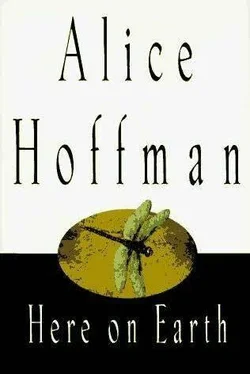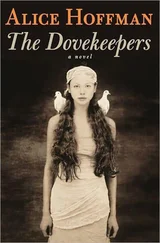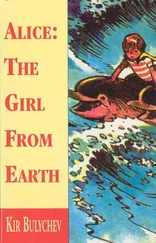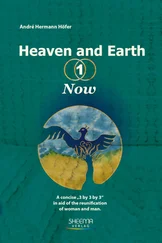Alice Hoffman - Here On Earth
Здесь есть возможность читать онлайн «Alice Hoffman - Here On Earth» весь текст электронной книги совершенно бесплатно (целиком полную версию без сокращений). В некоторых случаях можно слушать аудио, скачать через торрент в формате fb2 и присутствует краткое содержание. Жанр: Современная проза, на английском языке. Описание произведения, (предисловие) а так же отзывы посетителей доступны на портале библиотеки ЛибКат.
- Название:Here On Earth
- Автор:
- Жанр:
- Год:неизвестен
- ISBN:нет данных
- Рейтинг книги:5 / 5. Голосов: 1
-
Избранное:Добавить в избранное
- Отзывы:
-
Ваша оценка:
- 100
- 1
- 2
- 3
- 4
- 5
Here On Earth: краткое содержание, описание и аннотация
Предлагаем к чтению аннотацию, описание, краткое содержание или предисловие (зависит от того, что написал сам автор книги «Here On Earth»). Если вы не нашли необходимую информацию о книге — напишите в комментариях, мы постараемся отыскать её.
Here On Earth — читать онлайн бесплатно полную книгу (весь текст) целиком
Ниже представлен текст книги, разбитый по страницам. Система сохранения места последней прочитанной страницы, позволяет с удобством читать онлайн бесплатно книгу «Here On Earth», без необходимости каждый раз заново искать на чём Вы остановились. Поставьте закладку, и сможете в любой момент перейти на страницу, на которой закончили чтение.
Интервал:
Закладка:
Richard nods. “Once in a while, in the winter, after a snow, you’d come upon a dozen or more of them, and then you’d know something was happening that no human could understand, or even recognize. They call it a foxes’ circle, a meeting held as if there were a board of directors of the woods. I think about the foxes’ circle when I do fieldwork. There’s world upon world out there, with different rules.”
“I wonder why they all disappeared.”
“They found a single rabid specimen one season and that was the end of foxes on this hill.”
It was the year when Hollis left town. Richard recalls that each time he came to call on March, he’d hear gunfire in the woods. He was grateful to Hollis back then; in leaving, Hollis had given Richard an opportunity he’d never guessed he would have. Funny the things you remember. Richard definitely remembers that March would smile whenever she opened the door and saw him. He knows he didn’t imagine that.
“When I was really little,” he says now, “maybe five or so, my sister found an orphaned fox. She kept the kit in her bedroom, secretly of course, because my mother would have had an outright conniption and made us all submit to a series of rabies shots if she ever caught sight of the thing. My sister kept an opossum one year, and then there was a crow with a broken wing that I found-she took care of that crow for months. My mother went crazy when she discovered wild animals had been in the house, but my sister was surprisingly strong-willed.”
“Belinda.”
“That’s right.” Richard regrets not telling Gwen more about his family, but for the longest time his personal history seemed extremely distant. Now, it’s back. All he has to do is listen and he can hear gunfire in the woods. He can see the way the crumbs fell down on the ground whenever his sister reached for the stale bread she kept in her coat pockets, ready should she happen to discover some homeless or injured creature while walking in the woods. This is what Richard thought when she wrote to tell him she had married Hollis. Only this time the creature she’d chosen to care for was much more dangerous than an opossum or a crow or a fox.
“When the kit was nearly full grown, Belinda let it into the woods. But it kept coming back. You’d walk out the door, and there it would be. Or maybe it wasn’t a fox at all.” Richard places his coffee cup on the table and pets Sister’s head. “Maybe it was one of those dreadful red dogs people say were bred from foxes.”
“There are still some of those at Guardian Farm,” Gwen says.
“Yes.” Richard leans his head back against the soft fabric of the easy chair. He thinks this type of stuff is called chintz, but he doesn’t know for sure. “I’m not surprised. There were always dogs hanging around, begging. My sister always set out food for them. She was much too kindhearted.”
Richard has only begun to realize how tired he is, in spite of the coffee. He has a horrible sinking feeling in the pit of his stomach, which makes him think he should call Ken Helm and go back to the airport right now, but he doesn’t. Instead, he falls asleep right there, in the chair. Gwen covers him with a blanket Judith Dale bought on a trip to Ireland taken with the Friends of the Library one summer. It pains Gwen to see her father sleeping in a chair, but what can she do? Shake him to consciousness? Tell him to flee? Don’t hurt yourself, is what you say to a child, not a parent, and a man like Richard Cooper is not prone to take other people’s advice, not once he’s made up his mind.
There’s a draft in the living room, and Sister curls up beside Richard’s feet. On the mantel, the old clock March’s father bought in Boston keeps time. The sleet continues until the roads are slick with ice and fallen leaves. It’s so bad that by the time the first pale light of morning begins to break through the clouds, March has to inch along on the back road in the old Toyota. She is staying with Hollis later and later; this time, as she was leaving, he pulled her back to him. Susie thinks he’s so evil, but he was concerned about March driving in such bad weather. People think they know him, but they don’t. They don’t know that he cries in his sleep, or that he needs to be comforted from the worst of his dreams, over and over again.
When March does finally get home, she has to carefully make her way up the frozen path, and hold on to the railing so as not to slip and break her neck on her way to the front door. She’s not taken a coat. She’s so hot these days; she’s burning up. All she’s wearing are jeans and a borrowed wool sweater of Hollis’s. She hasn’t bothered with underwear either; she’s much too overheated for even the flimsiest silk. Inside, the house feels stuffy and close; there’s the scent of coffee and of wet dog. There’s something else too, a faint odor of regret which is sifting over the floorboards and the rugs.
As soon as she walks into the room, she sees that the man she’s spent the last eighteen years with has come for her, and he appears exhausted by the effort. Richard looks so uncomfortable, folded up in that chair, in his best suit, which is now rumpled. The dog rouses and shakes itself from sleep, but Richard doesn’t hear the clink of its collar. He doesn’t hear March come closer, and crouch beside him. He’s dreaming about her though, and in his dream she is surrounded by falling leaves, each one a brilliant yellow, as if fashioned from pure gold.
Richard doesn’t wake until March takes his hand. As soon as he opens his eyes and looks at her face, he knows it’s over. She pities him, that’s what he sees, and pity is not what he wants.
“I don’t suppose you’d like to fly to San Francisco with me on Sunday?” Richard laughs. He was supposed to keep this idea to himself until they’d spoken at length, but obviously he can’t do that.
In spite of herself, March laughs. He never did like small talk.
“Should I take that as a yes?” Richard asks.
“It’s not that I don’t love you,” March says.
Richard cannot help but wonder how many times this phrase has been spoken, and how many people who’ve recited these words have believed they were being kind. What makes a person love another? That’s what Richard wonders, as March tells him that she’ll be staying on, and that she never meant to hurt him. Are March’s dark eyes the element that always gets to him? Is it the way her beautiful mouth twists to one side when she smiles?
Richard goes upstairs to grab a few hours of sleep in March’s bed. When he wakes, the bright sunshine which blasts through the ice-covered windows is blinding. He gets his suit, having draped his trousers and jacket over a chair so he will appear presentable when he goes to the cemetery. He wants to look as though nothing is wrong when he goes downstairs and kisses his daughter good morning, when he speaks cordially to March and asks if he can use the Toyota in her driveway to run his errands. March has been crying; her face is all puffy and her eyes are red. Looking at her, knowing that she’s been with Hollis and will continue to be with him, brings Richard immense sadness.
What would another man do? Carry her off, make demands, beat her until she gave in to him, stand there and cry? Richard Cooper is the same man he was before this happened to him. He’s the man who leaves a check on the kitchen counter because he worries that his wife will run out of cash. He’s the man who brings flowers to the graves of his loved ones, and says a silent prayer for each one. It’s the same Richard Cooper who trades stories with Jimmy Parrish about racehorses who’ve been dead a quarter of a century or more over lunch at the Lyon Cafe, who calls for another round of beers and some chili-cheese fries, then makes certain he grabs the check before Jimmy can reach into his pocket for his own leather wallet. He’s the man who drives to Guardian Farm late in the day and parks in the driveway where he has a good view of the house where he grew up, despite the uncertain November light.
Читать дальшеИнтервал:
Закладка:
Похожие книги на «Here On Earth»
Представляем Вашему вниманию похожие книги на «Here On Earth» списком для выбора. Мы отобрали схожую по названию и смыслу литературу в надежде предоставить читателям больше вариантов отыскать новые, интересные, ещё непрочитанные произведения.
Обсуждение, отзывы о книге «Here On Earth» и просто собственные мнения читателей. Оставьте ваши комментарии, напишите, что Вы думаете о произведении, его смысле или главных героях. Укажите что конкретно понравилось, а что нет, и почему Вы так считаете.












